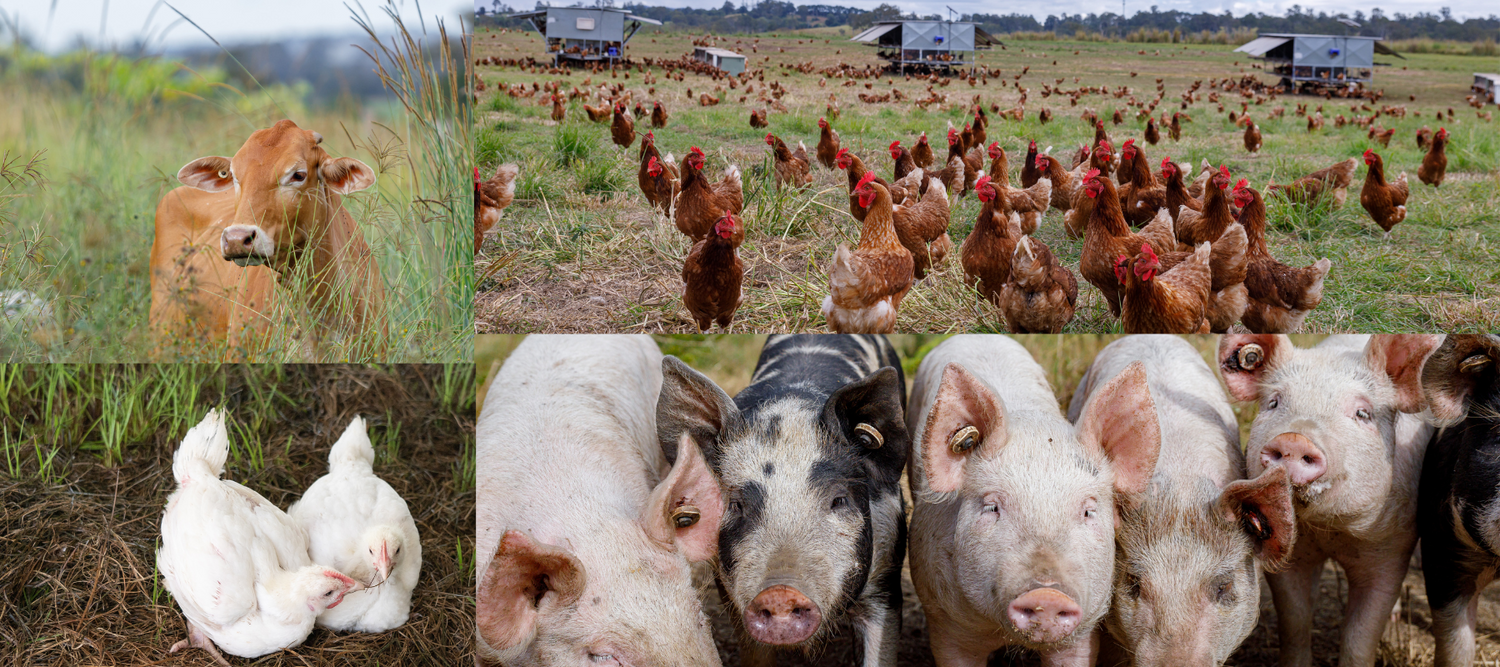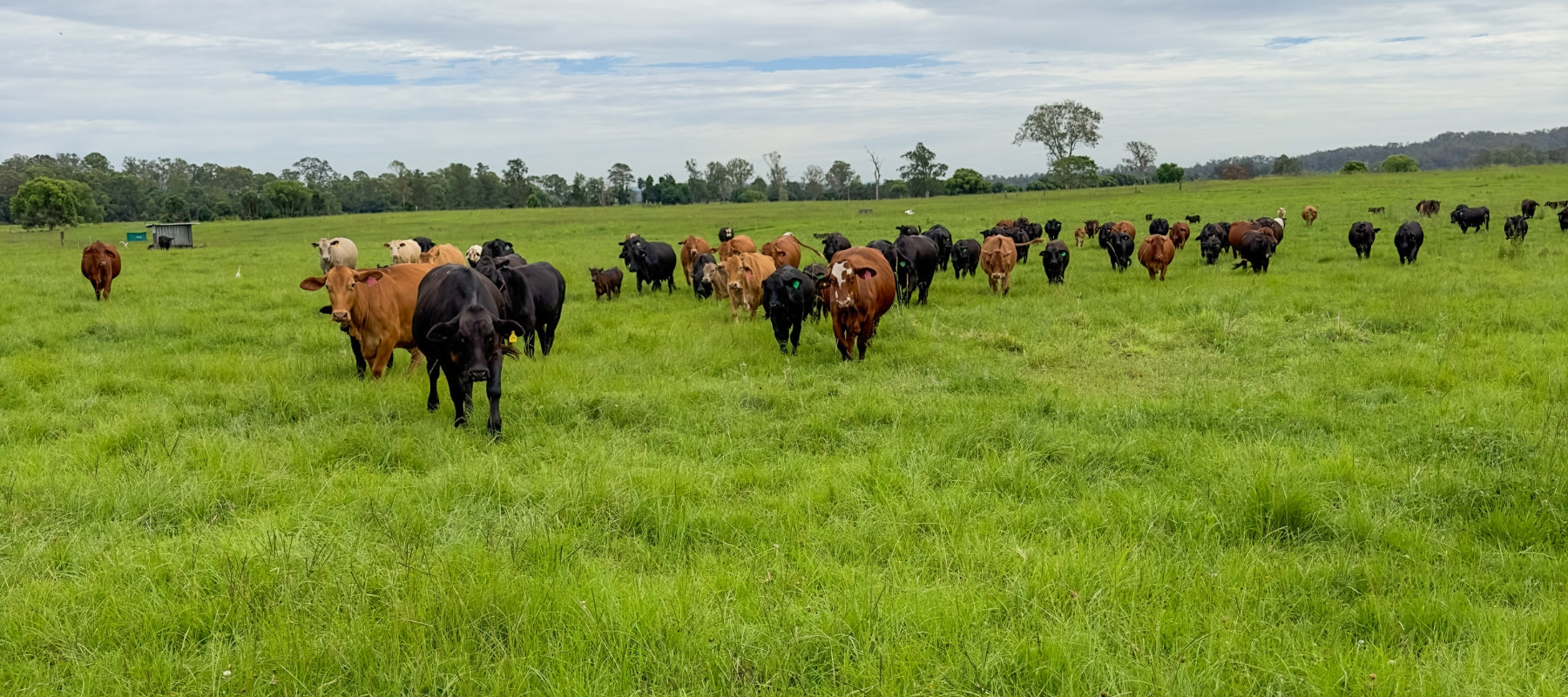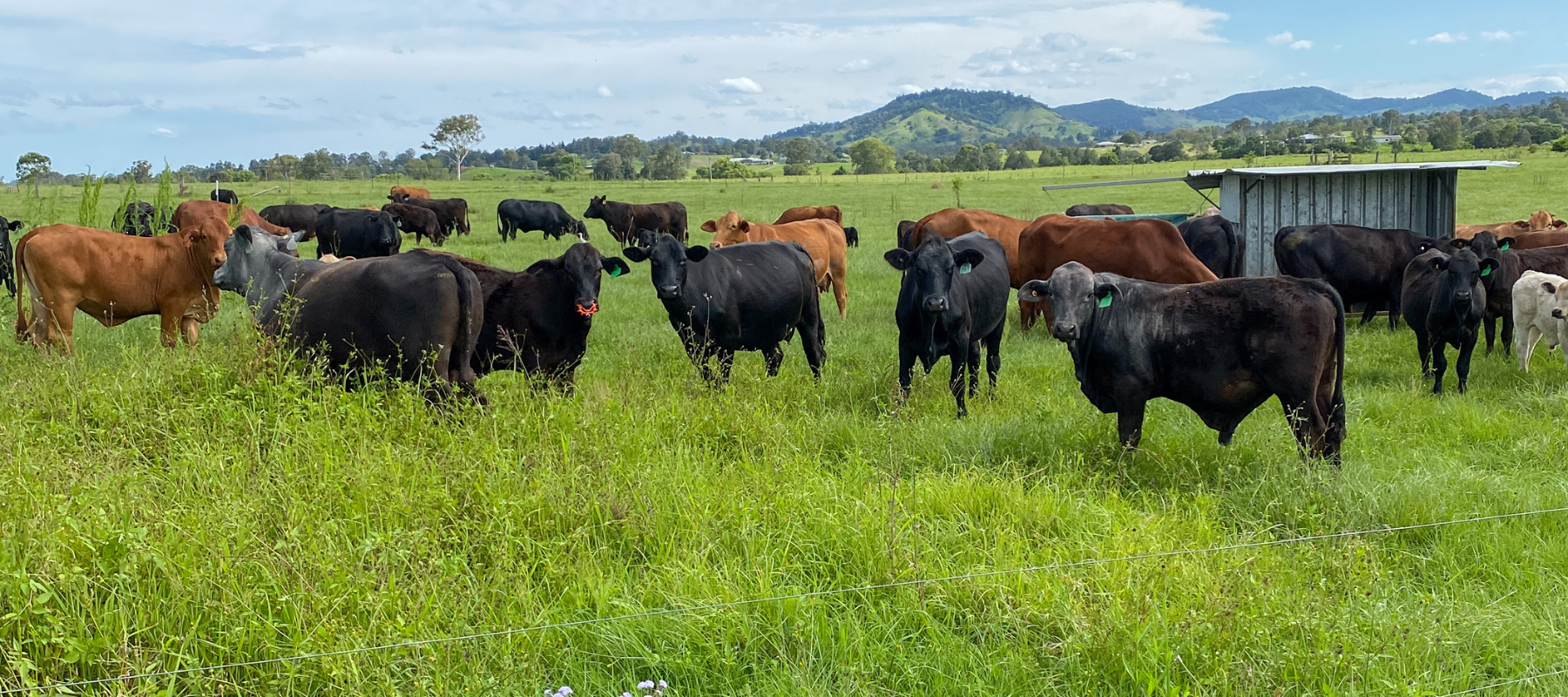At Forage Farms we have pigs, laying chickens, meat chickens, cattle, and sheep. This multi-layered approach adds a level of complexity to our day to day, but it is the key to building diversity in the environment and creating a healthier landscape.
Each animal grazes differently and this helps to ensure plant diversity and they play an important role in the landscape. The cattle prefer grasses, the sheep favour broad leaf species and herbs, pigs tend to go for broad leaves and grass and the chickens will eat just about anything! Just like nature, our animals are all different. While a mono approach to farming can be tempting, it often leads to too much of one thing being taken from the landscape. Over time it will become degraded.
We have seen the impact our multi-layered approach has had on the environment as we have introduced more animals. When we first came to Forage Farms it was pretty much a monoculture of less nutritious Bahir grass. By introducing chickens and pigs to prepare the environment and improve soil fertility better quality green panic grass and herbs started to grow. This provided a suitable environment on which to finish cattle.
Our wildlife appears to have benefited too. We delight is seeing many more native animals on the farm including bandicoots and native birds. There are also less cane toads – most probably the result of greater diversity and more predators to keep their dominance in check. By letting young trees regrow naturally we have provided different ecosystems with different plant heights and places for the wildlife to hide and feel comfortable in.
At a commercial level the multi-layered approach is like having a diverse stock portfolio. You get to hedge your bets somewhat. For instance, cattle trading only happens once every six months, whereas chickens are laying pretty much all year. This creates cash flow and the ability for us to support our local community by providing employment.
Animal diversity works hand in hand with our Natural Sequence Farming techniques to that we can continue to farm regeneratively. This means we want to run our farm in a way that leaves it better than we found it. To do this, we manage our farm in a way that works alongside nature instead of trying to control and destroy nature's natural patterns. For our customers, this provides them with comfort knowing their food has been produced ethically and is free from nasty chemicals.




